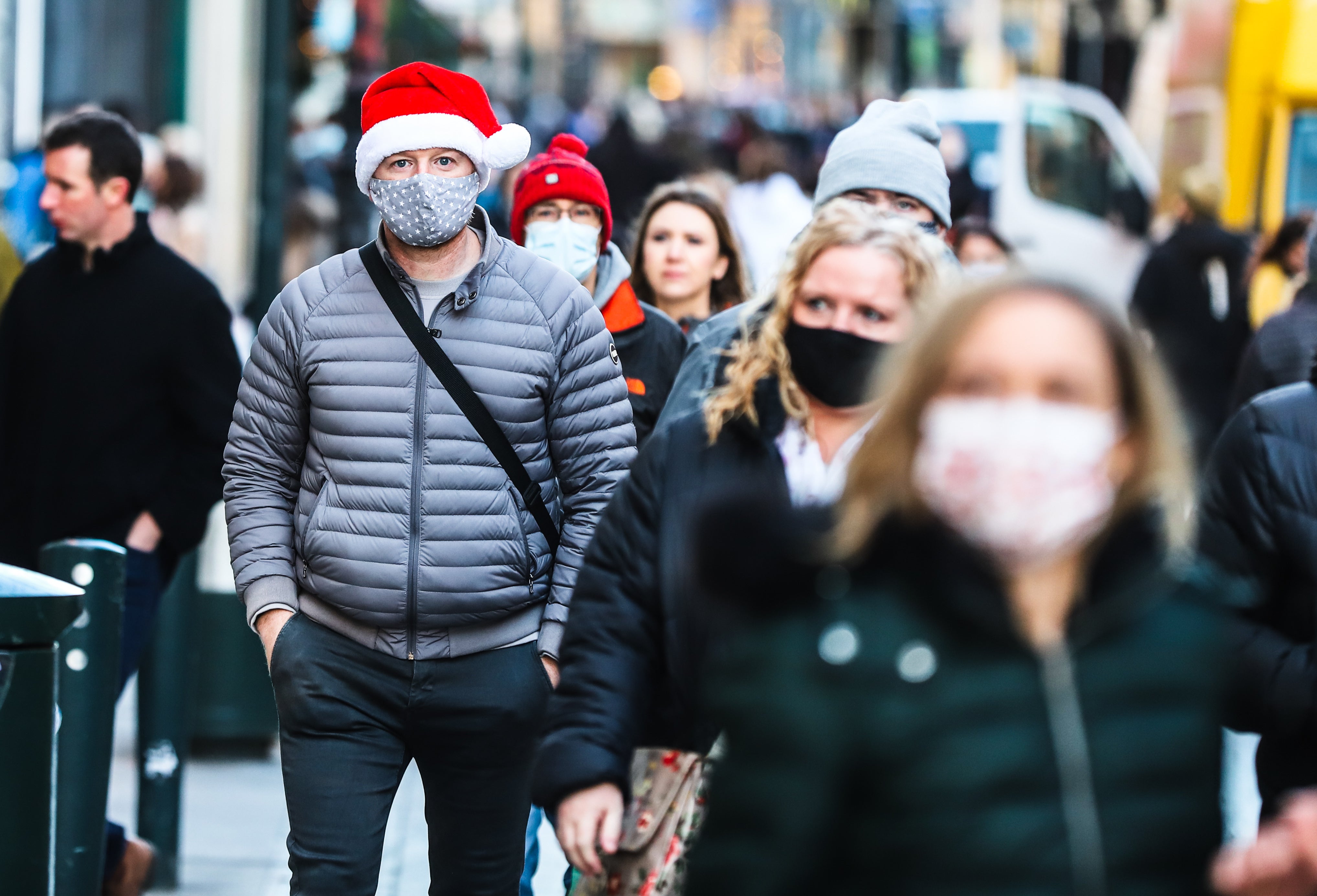‘Don’t socialise if you don’t need to’, UK health chief urges in bid to drive down omicron variant spread
14 cases of the Omicron variant have been identified in the UK

The head of the UK’s Health Security Agency has urged people not to socialise if they “don’t particularly need to” in a move to drive down the spread of the Omicron variant.
Dr Jenny Harries said people could help to slow the spread by limiting their number of social contacts as she urged people to have their booster jabs.
14 cases of the Omicron variant have so far been identified across the UK, with another three more cases identified in Scotland on Tuesday morning, though experts expect this number to rise in the coming days.
Speaking on BBC Radio 4’s Today programme, Dr Harries said “vaccines appear to be effective, but we find that the variant is more highly transmissible, having lowish grade infection, but in very large numbers of the population, [it] could still be a significant impact on our hospitals.
“And, of course, our behaviours in winter and particularly around Christmas, we tend to socialise more, so I think all of those will need to be taken into account.”
Asked whether people should be told to work from home in England, as happening in Scotland, Wales and Northern Ireland, she said: “We’ve seen that not everybody has gone back to work and I’d like to think of it more in a general way, which is if we all decrease our social contacts a little bit, actually that helps to keep the variant at bay.
“So I think being careful, not socialising when we don’t particularly need to and particularly going and getting those booster jabs which, of course, people will now be able to have at a three-month interval from their primary course.”
In October, the Scientific Advisory Group for Emergencies (Sage) said that all Plan B measures should be implemented in unison to have the biggest effect in tackling any surge in coronavirus cases.
Out of the individual measures, Sage said working from home would have the biggest impact.
New coronavirus measures come into action in England today which will see face coverings mandated again on public transport and in shops. In addition, from 4am today, passengers arriving in the UK have to take a PCR test for Covid with the expectation that they will have to self-isolate until they test positive.
Speaking to Sky News, health minister Gillian Keegan, told Sky News the government is “very much hoping that we can keep Christmas on track.”
“Of course, Christmas is on track, and actually what everybody wants for Christmas is if you haven't had your first jab, come and get it, if you haven't had your second jab, come and get it, and if you haven't had your booster, come and get it when you're asked,” she said.
He said much more would be known about the variant before Christmas, adding: “You probably saw that the doctor in South Africa, who initially identified it, had seen relatively mild cases, which is very encouraging.
“However, you know, that’s a much younger population. It’s the elderly population, we need to worry about - in South Africa only 6 per cent are above 65 years whereas we’ve got a much higher proportion.”
Prime Minister Boris Johnson will hold a Downing Street press conference this afternoon to urge people to have their booster jabs when called forward by the NHS.
Join our commenting forum
Join thought-provoking conversations, follow other Independent readers and see their replies
Comments
Bookmark popover
Removed from bookmarks